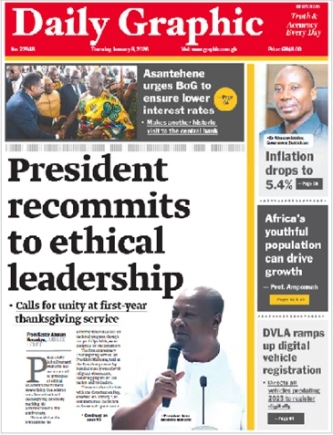Media urged to expose land enchroachers
The Chief Executive Officer of Ghana Irrigation Development Authority (GIDA), Dr Ben Vas Nyamadi, has urged the media to give prominence by way of reportage to people who were encroaching on lands that had been demarcated for special purposes.
He said it was sad that people were quick to sympathise with those whose properties were demolished but “I have not seen much of the press going round to make sure that those who are also encroaching are given sufficient warning.”
Dr Nyamadi was speaking at a closing workshop on the Dawhenya Integrated Rural Development Project in Accra
The workshop was to inform stakeholders of the outcome and achievements of the project, and to finalise the project successfully.
The Dawhenya Integrated Rural Development
KOICA is supporting Ministry of Food and Agriculture (MOFA) with $3.6 million to implement the three-year project slated for 2011 to 2013.
The objecrives of the project are to increase agricultural productivity by improving infrastructure including the rehabilitation of the Dawhenya irrigation scheme; raise the standard of living of the people in Dawhenya community by constructing classrooms and teachers bungalows for selected schools and build agricultural capacity and activate community organisations.
GIDA
Dr Nyamadi said out of the 2000 hectors of land acquired for the project, 450 hectors had since been developed, thus 200 for rice production and 250 for vegetable production, saying: “the rest is being encroached upon.”
He said GIDA had tried its best to ward off these encroachers to allow work to continue on the rest of the land but to no avail.
Dr Nyamadi, therefore, called for support from the public and the government to help put an end to the activities of these encroachers in order to go ahead with the second phase of the project.
KOICA
In his address, the representative of KOICA in Ghana, Mr Cho Kwang-Geol, said KOICA had been supporting the project to enable the Dawhenya community to increase agricultural productivity and their income.
According to him, KOICA had provided several forms of training on Saemoul Undoung (self-reliance), gender development and organisation management to build the capacity of the farmers.
He said through the pilot farmland and fish pond programme which was included in the capacity building training, farmers could now grow and sell marketable agricultural products such as rice, vegetable and fish.
Mr Kwang-Geol urged the stakeholders to put the project to good use in order to improve the living conditions of the people as well as set a good model of rural development for other communities in the country.

 Click the link to read your copy.
Click the link to read your copy.